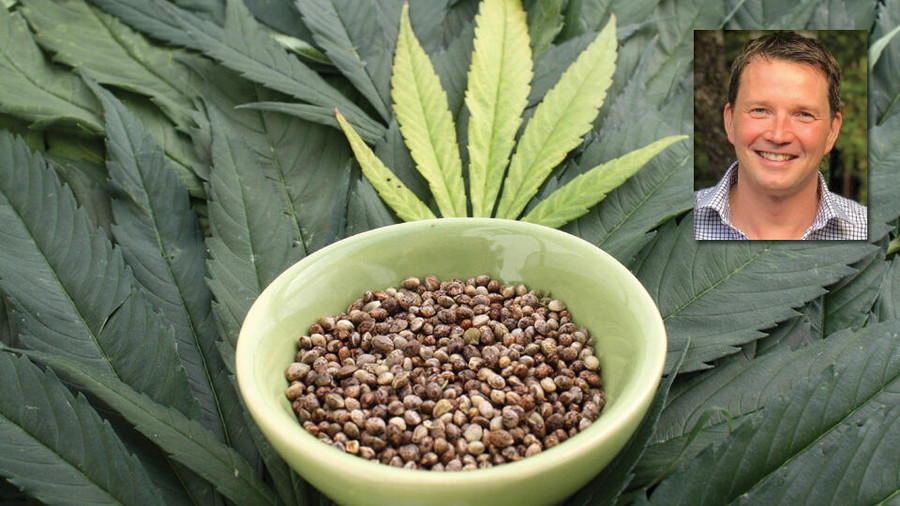How different are hemp and marijuana? This is a very common question and is often widely misunderstood. Further, people, with good reason, are curious if Cannabidiol (CBD) derived from these two species of plants is in fact different.
The short answer is hemp and marijuana are both classified as subspecies of the plant species Cannabis sativa L. in the Integrated Taxonomic Information System (ITIS — an authoritative taxonomic database of plants, animals and fungi). CBD derived from hemp or marijuana are one in the same compound with the only real difference being the other plant compounds that may be present with the CBD.
It is generally accepted that Cannabis sativa L. (the parent species to hemp and marijuana) has been bred to exhibit specific attributes that humans have benefited from for over 10,000 years. These tall, stalky plants are very low in THC but can have high CBD content and have many industrial applications such as rope, textiles, paper, biofuel and more. And this is what leads this subspecies to be known as “industrial hemp.”
Humans were also quite proficient in breeding a different subspecies that had sticky, resin-filled flowers (for the female plants, anyway). These plants were progressively bred for more of the THC-heavy resin and the psychoactive properties. These plants generally have high THC and low CBD content. This subspecies became known as “marijuana.”
Cannabis prohibition has been in place since 1937 in the U.S. with the passage of the Marijuana Tax Act.
Fast-forward to 2014 and the passage of the Agricultural Act of 2014, which allowed states to set laws for cultivating industrial hemp. This resulted in the need to distinguish the difference between the illegal version of cannabis — marijuana — that can get you “high” and the industrial variant, hemp that has a myriad of other useful applications. Forced to define the difference, the U.S. Department of Agriculture referenced a publication from 1976 by Dr. Ernest Small, “A Practical and Natural Taxonomy for Cannabis.” Dr. Small defined the dividing line between industrial hemp and marijuana at 0.3 percent THC — plants with less than 0.3 percent were hemp, plants with more were marijuana.
In December of 2018, the Agricultural Improvement Act of 2018 was passed, removing industrial hemp from Schedule 1 status under the Controlled Substances Act. This set the stage for a CBD product explosion on the market. Industrial hemp was now legal to grow as of 2014 and its oversight shifted from the DEA to FDA in 2018. It is important to note that the 2018 Farm Bill didn’t reschedule CBD, a common misconception The Farm Bill rescheduled hemp and any of its derivatives. This made CBD from industrial hemp legal but not CBD from marijuana — an important distinction.
Fast-forward again to 2020 when many states have recreational marijuana laws and industrial hemp is widely grown and available. What does that mean for CBD, which can still be derived from marijuana and industrial hemp?
CBD derived from a marijuana plant is still a federally regulated substance because these plants have greater than 0.3 percent THC. Regardless of the compounds — like CBD, which can be obtained from the plant, the result is a federally controlled substance. In states that have medical or recreational marijuana laws, CBD derived from marijuana is still subject to restrictions that limit its distribution through dispensaries along with THC products.
CBD derived from industrial hemp is legal to possess and distribute since the plant that it was sourced from is federally legal per 2018 laws. The only restrictions that may exist are at the state level: Idaho, Nebraska and South Dakota do not permit CBD in any form to be sold within their borders.
There are still some important limitations on industrial hemp-derived CBD since the FDA has oversight in this area. Their official position is that CBD is not to be consumed orally by humans or animals. It can be applied topically, however. This has opened the door to a wide variety of products including moisturizers, salves, balms, bath bombs, soaps and lubricants to name a few.
The CBD derived from any species of Cannabis sativa L. plant is all the same. Extracting compounds from a cannabis plant will yield a variety of compounds, even hundreds if done carefully. This myriad of compounds includes terpenes, flavonoids and cannabinoids (CBD, THC and others). With a little refinement you will have a rich, earthy oil that is commonly marketed as “full-spectrum oil.” Refining that full-spectrum extract further will increase the concentration of cannabinoids like CBD but at the expense of losing some of the more volatile compounds like terpenes. This is commonly marketed as “broad spectrum oil.” Refining even further will give yield to isolated cannabinoids like CBD. This ultra-pure format is called “Isolate.”
The key takeaway here is that only CBD that is legal to sell in 47 states and in stores without any special permitting is derived from industrial hemp and put into non-consumable products. Note: This information is for educational purposes only and does not constitute legal advice.
John Renko is a CBD scientist, educator and co-founder of Go Love CBD Lube.







